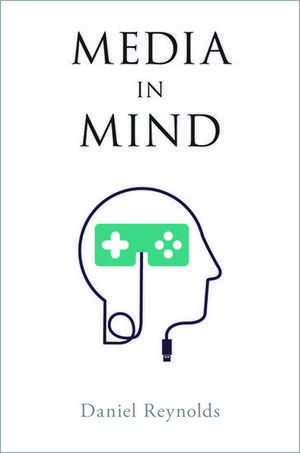Media in Mind
Autor Daniel Reynoldsen Limba Engleză Hardback – 31 ian 2019
| Toate formatele și edițiile | Preț | Express |
|---|---|---|
| Paperback (1) | 232.31 lei 10-16 zile | |
| Oxford University Press – 4 apr 2019 | 232.31 lei 10-16 zile | |
| Hardback (1) | 545.94 lei 31-37 zile | |
| Oxford University Press – 31 ian 2019 | 545.94 lei 31-37 zile |
Preț: 545.94 lei
Preț vechi: 696.60 lei
-22% Nou
Puncte Express: 819
Preț estimativ în valută:
104.48€ • 108.41$ • 87.33£
104.48€ • 108.41$ • 87.33£
Carte tipărită la comandă
Livrare economică 06-12 martie
Preluare comenzi: 021 569.72.76
Specificații
ISBN-13: 9780190872519
ISBN-10: 0190872519
Pagini: 220
Ilustrații: 47 photographs, 6 illustrations
Dimensiuni: 239 x 160 x 20 mm
Greutate: 0.53 kg
Editura: Oxford University Press
Colecția OUP USA
Locul publicării:New York, United States
ISBN-10: 0190872519
Pagini: 220
Ilustrații: 47 photographs, 6 illustrations
Dimensiuni: 239 x 160 x 20 mm
Greutate: 0.53 kg
Editura: Oxford University Press
Colecția OUP USA
Locul publicării:New York, United States
Recenzii
Media in Mind is a stimulating and mostly philosophical exploration of mind-body dualism in the context of films and video games, using John Dewey's concept of transactionism as an analytic thread.
I believe Media in Mind has something to contribute to these discussions because it offers new ways of thinking about our own intimate connections with the media that pervade our lives and connect us to one another in profound and complex ways.
With Media in Mind, Reynolds addresses longstanding philosophical hurdles in spectatorship theory while also forging a compelling naturalist model for understanding film, video games, and other media as part of the enworlded human mind. This book takes on the lofty challenge of reevaluating the Cartesian dualism undergirding most dominant theories of media with all of the wit and rigor that such a project requires.
Reynolds sets out a clear and elegant alternative to dualist and representationalist models of media spectatorship and video gameplay. In contrast to media theories premised on interaction between mind and media, he draws on the philosophy of John Dewey to propose a model of transactionism. The argument is lively, accessible, and profound, fueled by his close attention to a diverse array of media experiences, from Tetris to Tsai Ming-liang. His deft analyses are insightful, compelling, and fun to read.
I believe Media in Mind has something to contribute to these discussions because it offers new ways of thinking about our own intimate connections with the media that pervade our lives and connect us to one another in profound and complex ways.
With Media in Mind, Reynolds addresses longstanding philosophical hurdles in spectatorship theory while also forging a compelling naturalist model for understanding film, video games, and other media as part of the enworlded human mind. This book takes on the lofty challenge of reevaluating the Cartesian dualism undergirding most dominant theories of media with all of the wit and rigor that such a project requires.
Reynolds sets out a clear and elegant alternative to dualist and representationalist models of media spectatorship and video gameplay. In contrast to media theories premised on interaction between mind and media, he draws on the philosophy of John Dewey to propose a model of transactionism. The argument is lively, accessible, and profound, fueled by his close attention to a diverse array of media experiences, from Tetris to Tsai Ming-liang. His deft analyses are insightful, compelling, and fun to read.
Notă biografică
Daniel Reynolds is Assistant Professor of Film and Media Studies and Andrew W. Mellon Fellow in Humanistic Inquiry at Emory University. He holds a BA in Linguistics from the University of Oregon, an MFA in Film Studies from Boston University, and a PhD in Film Studies from the University of California, Santa Barbara.

















